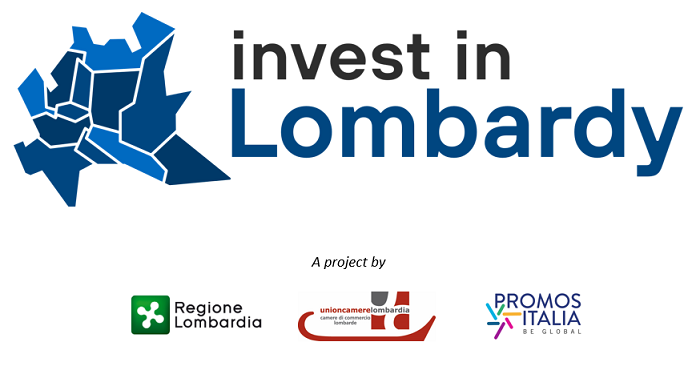On 21 April 2015 the Italian Government issued a package of measures (International Tax Decree and Certainty Decree) which significantly changes the tax rules applicable to cross-border operations and gives a specific definition to the concept of abuse of law and tax avoidance.
The whole package is even designed to attract foreign investments in Italy, to support the reorganization of existing businesses and to strengthen the competitiveness of Italian companies.
This document provides an overview of the measures included in the above-mentioned Decrees.
In detail, the International Tax Decree highlights topics such as:
- Advanced pricing program: in order to give more impulse to the mechanism at hand, the draft legislation (Decree) in article 1 extends the scope of Advance Pricing Agreements (“APA”) in order to cover not only transfer pricing issues but also deal with the attribution of profits to PEs. Further, through the new APAs program the taxpayer can define the tax base in the case of inbound and outbound migration. According to the Decree the new rulings will be in force for five years, with the possibility to roll outcomes of APAs back to the beginning of the period in which the rulings have been requested, without incur any penalty. A different ruling has been drafted with article 2 of the Decree, for situations where taxpayers make investments of at least € 30 million, with a significant impact on employment. In this case, the scope of the ruling covers the pre-definition of tax consequences for investors according to their business plans and in the case of any merger or acquisition, and gives assurance on the absence of abuse of law as the operation has been structured;
- Blacklisted dividends: article 3 of the Decree confirms full taxation of blacklisted dividends in the case of direct participation of an Italian company in the capital of the underlined subsidiary. In the case of indirect participation, the full taxation will only apply if the underlined subsidiary is held through an intermediate whitelisted company;
- Interest deduction: Italian group controlling foreign entities can no longer consider, for the purposes of computing the 30% EBITDA cap to net interest expense deduction, the amount of “theoretical” foreign 30% EBITDA. However, according to article 4 of the Decree, Italian entities will be allowed to include dividends received from such foreign subsidiaries in computing the maximum interests deductible amount;
- Blacklisted cost rules: taxpayers will be now entitled to a deduction of blacklist costs to the extent that these costs have been effectively incurred. However, a free-deduction is limited to the fair market value of the goods and services received. For a full deduction, according to article 5 of the Decree, the taxpayer will need to request a ruling proving that the operation has been put in place for a real economic interest and that the transaction has been actually carried out;
- Group tax consolidation: in light of the ECJ Sentence C40/2013, article 6 of the Decree introduces the possibility for two (or more) Italian entities to opt for the tax consolidation regime, being both controlled by a foreign parent resident in any EU country or any qualifying EEA country. At the same, the new provision introduces the possibility for Italian PEs of a foreign company to adhere to this regime, if specific conditions are met;
- Controlled Foreign Companies: according to article 8 of the Decree, a specific ruling to obtain exemption from black-list CFC rules is no longer mandatory. However, in the case of tax audits the taxpayer will need to submit the specific documentation to prove the existence of the conditions for the exemption to apply (either “business” test or “subject to substantial tax” test). Similar provision applies to CFC whitelisted, where a ruling is no longer mandatory. Furthermore, the Decree repeals the mandatory ruling procedure for affiliated black-list companies (interest of at least 20%, or 10% for listed companies);
- Outbound and inbound migration: the Decree extends the tax deferral regime also to the transfer of Italian PEs of a foreign company to any EU country or any qualifying EEA country, and to cross-border mergers and acquisitions which realize the outbound migration of Italian PEs. On the other side, where inbound migration is put in place by foreign whitelisted companies, the tax base of the assets and liabilities will be considered at fair value market. However, in the case of foreign blacklisted companies the tax base of the assets will be the lowest among the acquisition cost, the accounting cost and the fair value. Instead, for liabilities the tax base will be the highest of the three above-mentioned criteria;
- Branch exemption: article 14 of the Decree introduces the “all in-all out” regime to exempt the income generated by foreign PEs of an Italian company. According to the new provisions, the election is on a permanent basis and for all PEs abroad of the resident entity. At the same, tax losses realized by foreign PEs will be no longer relevant for tax purposes in Italy.
The Certainty Decree contains specific principles and definitions of “abuse of law”, reviews the requirements to double the ordinary statutes of limitations for tax assessments and introduces specific standards to apply for the “tax compliance program” with the Revenue Agency (through which, by the others, taxpayers can avoid any claim with tax authorities if they give proof to adopt an adequate internal audit model to manage their tax risks).
Under the new rules, abuse of law exists when a transaction “lack of economic substance, realizes an undue tax advantage and the tax advantage is the main target of the operation put in place”.
Moreover, the Certainty Decree while reviewing the new requirements for statutes of limitations subjects the “double of terms” to situations where, before the expiry of the ordinary terms, tax authorities have noticed of a tax violation to the public prosecutor.
Written by RSM Palea Lauri Gerla


